A valuable fertilizer supporting local agriculture
The District is committed to recovering as many resources as possible from wastewater, including biosolids. Our biosolids product, called Metrogro, is a valuable, nutrient-rich organic fertilizer that supports plant growth and soil fertility.
By reusing biosolids in agriculture, our District reduces environmental impacts and saves taxpayer dollars over disposal through other less sustainable methods, like landfill or incineration. Metrogro also helps farmers and landowners reduce their reliance on commercial, chemical-based fertilizers.
Before any land application takes place, Metrogro biosolids undergo treatment to control pathogens, bacteria such as E. Coli, or other organisms capable of transporting disease. Metrogro biosolids represent a sustainable source of nutrients that support local agriculture and helps farmers and landowners reduce their use of commercial, chemical-based fertilizers.
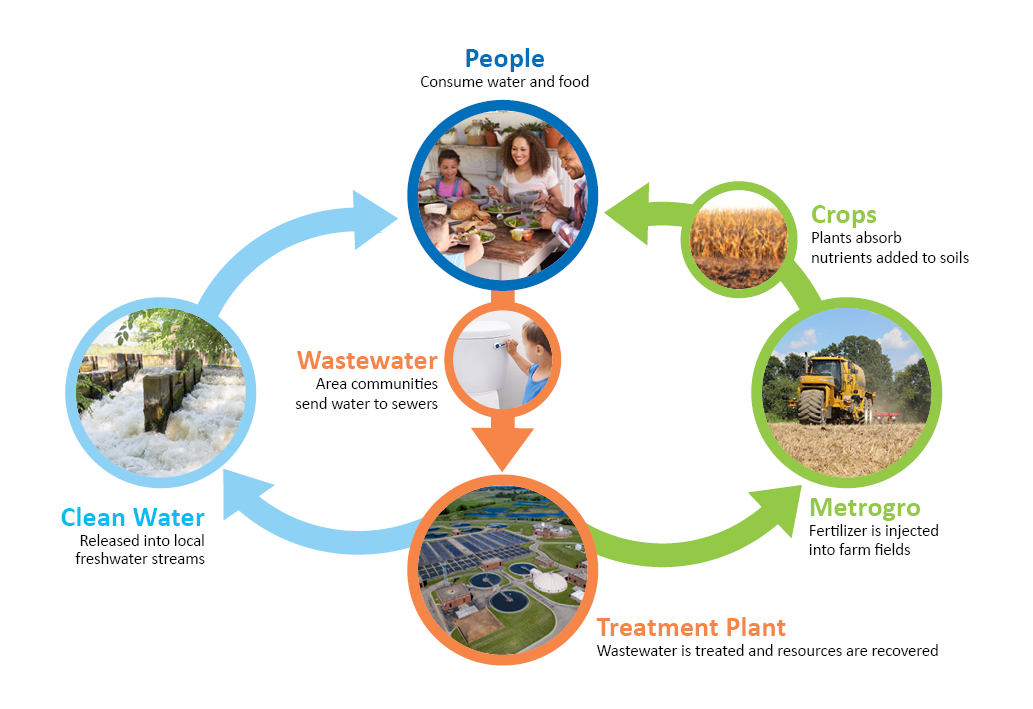
How Metrogro works
Metrogro works in much the same way as other organic manure sources, delivering nitrogen to crops slowly throughout the growing season. This slow-release action means the crop uses more nitrogen, and less is lost to the environment. Metrogro also supplies crops with phosphorus, which is critical for growth.
Site evaluation
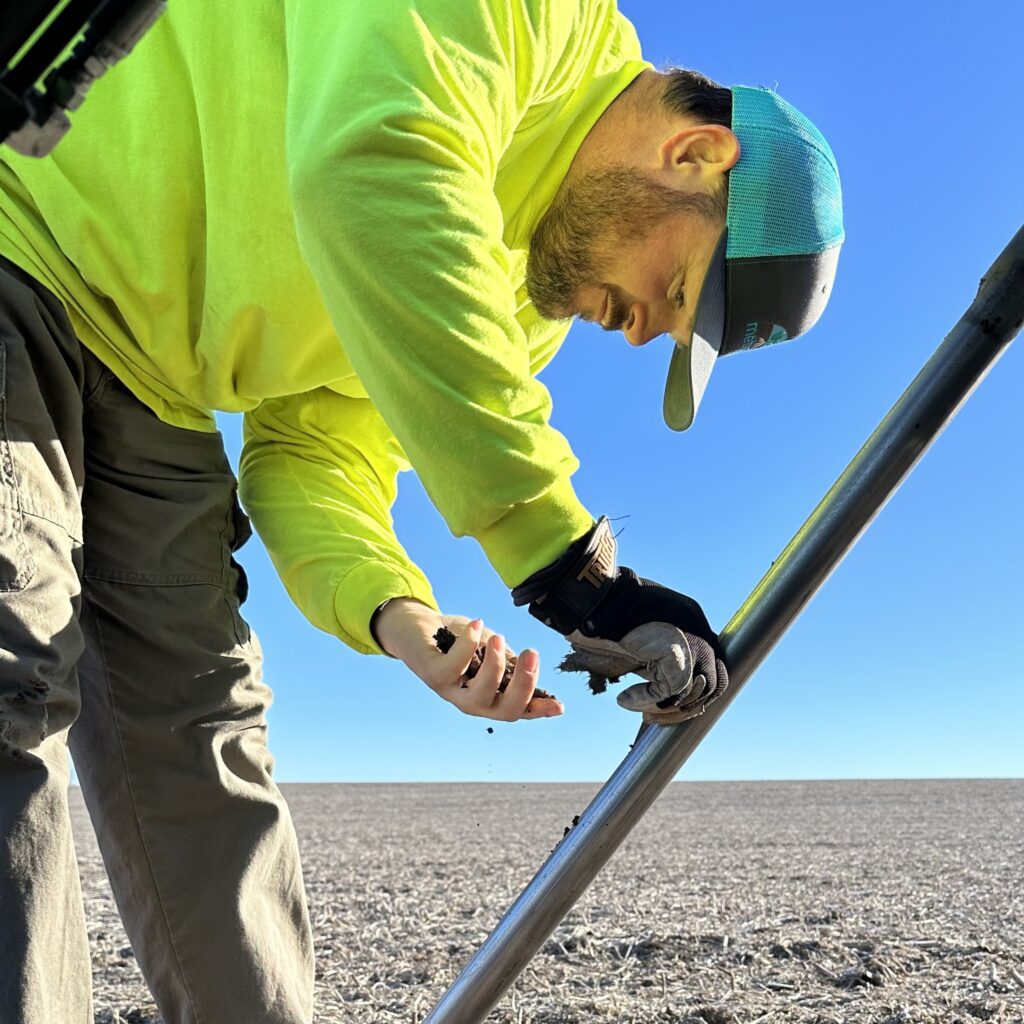
Metrogro staff evaluate all fields to meet Wisconsin Department of Natural Resources (WDNR) administrative code NR204, surveying soil types, depth to bedrock, groundwater levels, distance to wetlands or waterways, and other characteristics. Application follows safety protocols and strict setbacks from homes, wells, schools, and recreation areas.
Application and soil injection
Metrogro is injected into the soil using large, specialized machinery, which has numerous benefits over land spreading. With injection, applications are precise, and the potential for erosion and runoff is reduced. This assures nutrients are taken up by the crop and not moving to other areas such as wells or surface water. Injection also reduces undesirable odors and is more visually appealing.
Metrogro is incorporated into agricultural fields at a 6-8” depth, offering many benefits over land spreading, including:
• Greater precision during application
• Improved uptake by the crop
• Reduced soil disturbance from low-disturbance injection bar
• Increased visual appeal
• Decreased undesirable odors
The Metrogro team works closely with farmers to meet their needs. Because Wisconsin Department of Natural Resources (WDNR) regulations emphasize nutrient management, Metrogro applications are based on meeting the specific nitrogen requirement of the crop grown. This ensures no over-application of nutrients and reduces the risk of environmental harm through surface runoff or groundwater infiltration. In addition, District staff carefully consider equipment setup before Metrogro application to minimize field compaction, and crews are careful to leave the fields in good condition for the next crop.
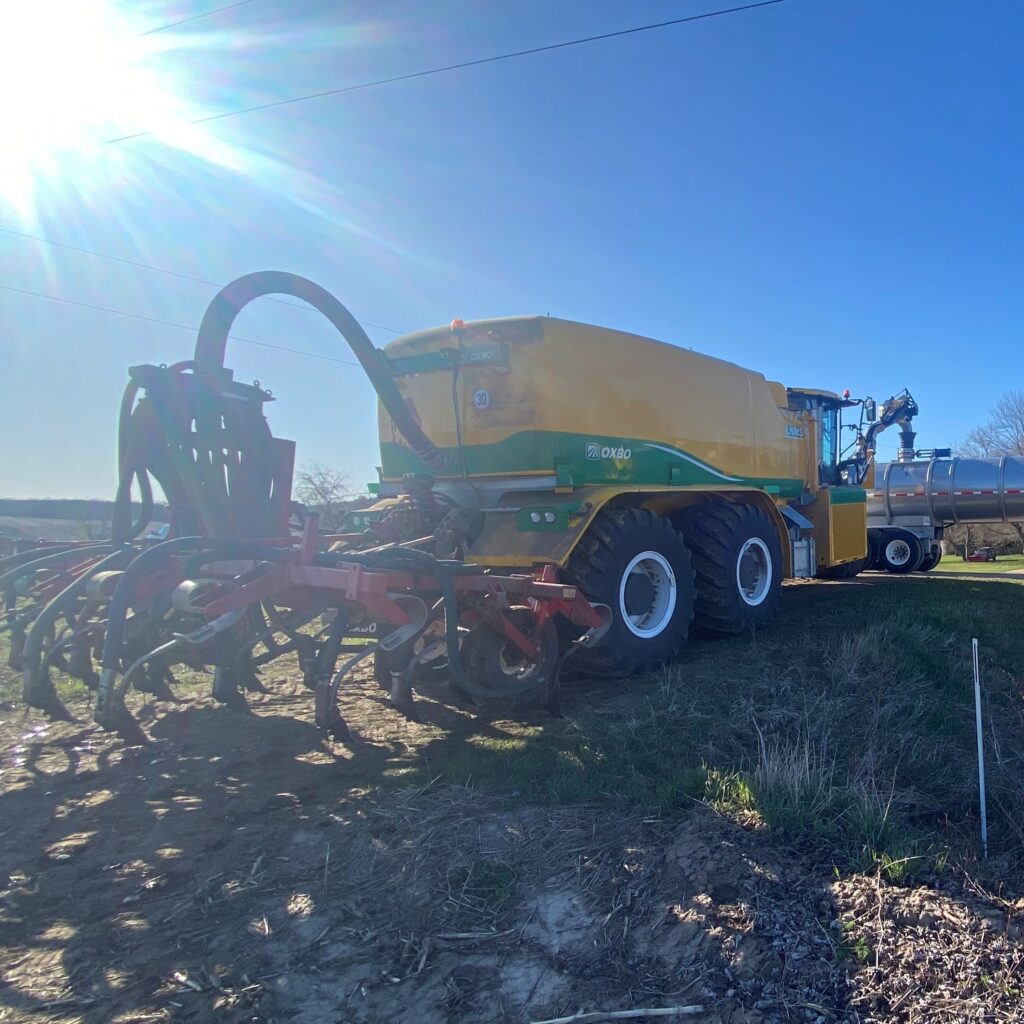
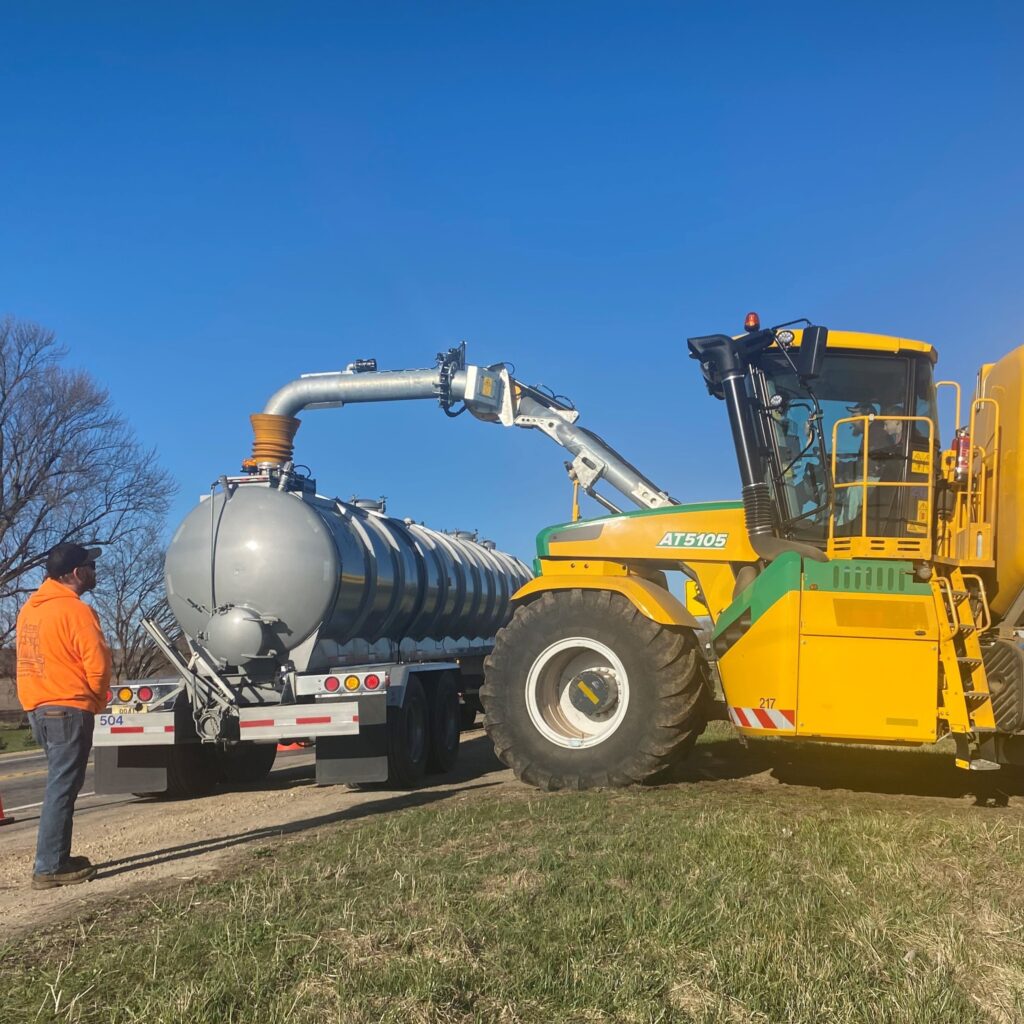
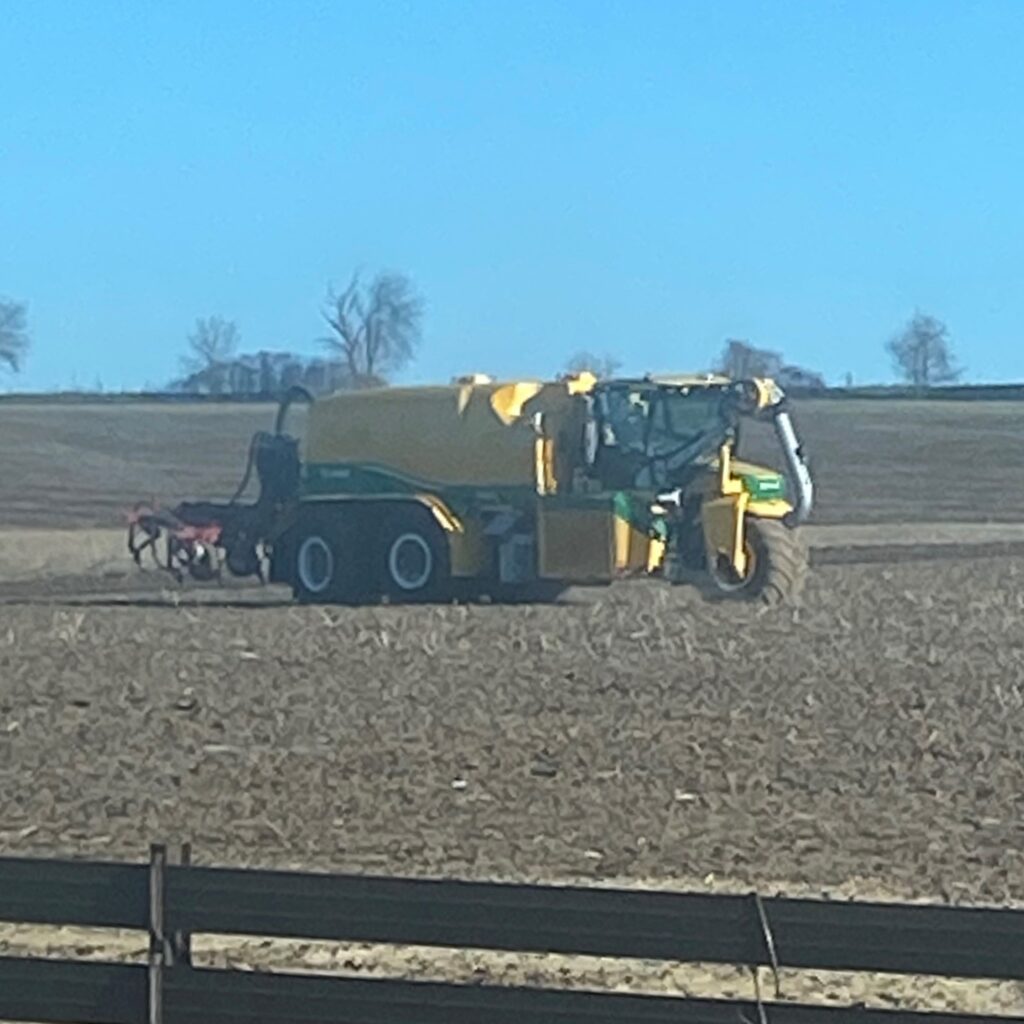
Quality assured sampling and analysis
Metrogro is applied to more than 5,000 acres each year. The District documents and reports every load via an annual spreading log sent to WDNR. Metrogro is sampled daily and analyzed weekly for phosphorus, multiple forms of nitrogen, potassium, solids content and 10 metals as part of the quality assurance process. Bacteria samples are also taken during the hauling season.
Standards and guidelines
Federal and state government agencies heavily regulate the Metrogro program and our biosolids, including the U.S. Environmental Protection Agency (EPA) and WDNR. These regulations are in place to protect communities and the environment while also recovering valuable resources from the biosolids.
High-quality product
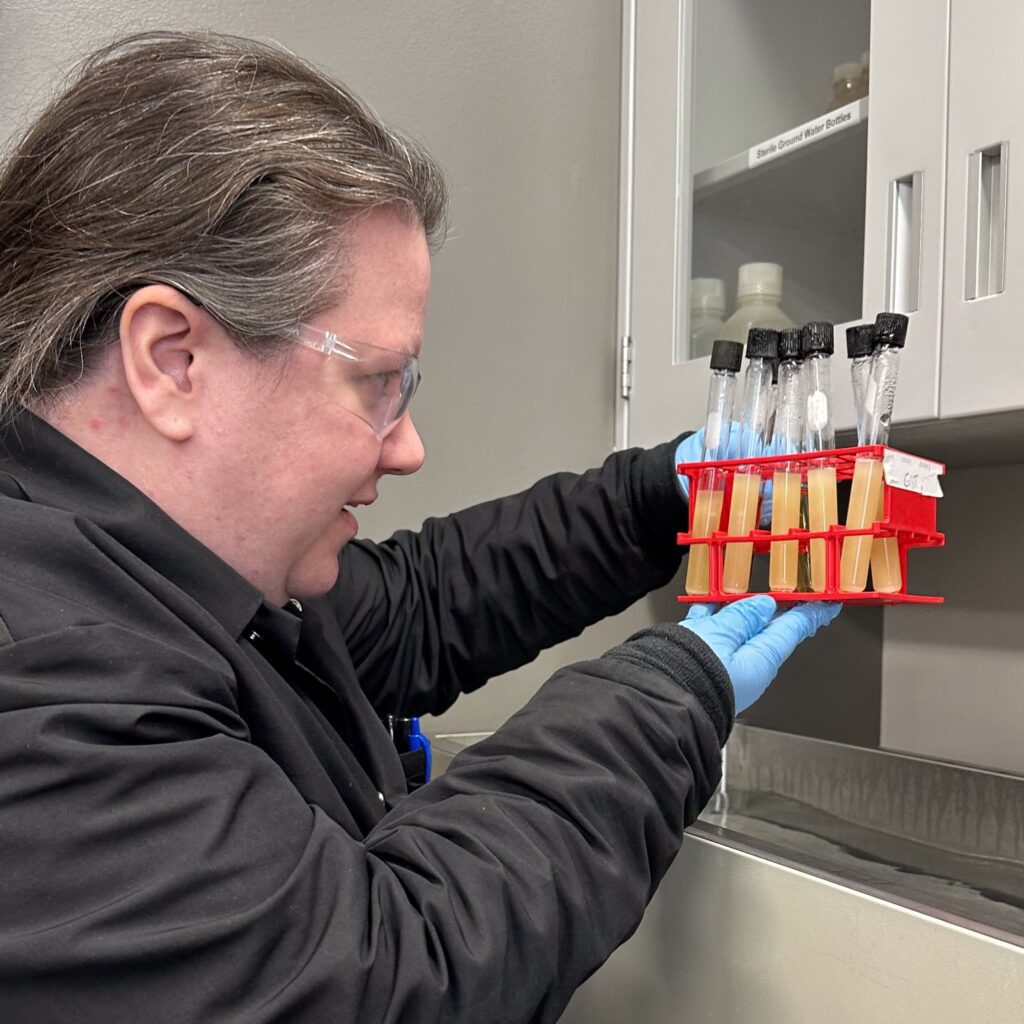
Our District takes pride in its efforts to mitigate pollutants before they reach the treatment plant. Metrogro outperforms concentration standards established by the EPA for exceptional quality (EQ) biosolids. Recent data offers a snapshot of our outstanding performance (well below EPA limits and thresholds) for selected metals.
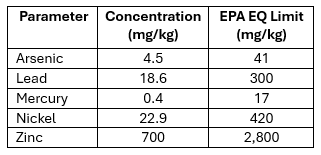
Minimal PFAS
The District is a national leader in PFAS sampling and analysis among wastewater facilities. Current data reveals very low PFAS concentrations in our area, likely reflecting historical uses and background levels persisting in local land and water. Specifically for Metrogro, PFAS analysis shows combined PFOA and PFOS levels below WDNR guidelines for land application of biosolids. View the reports at madsewerpfasinitiative.org.







